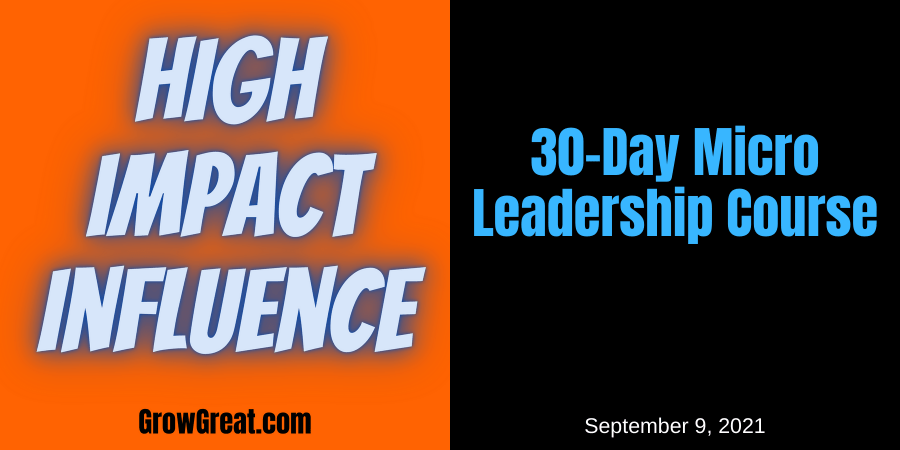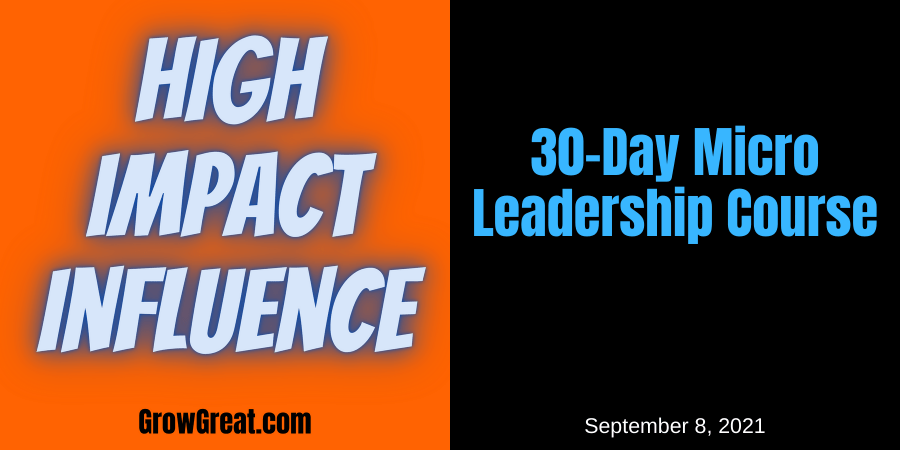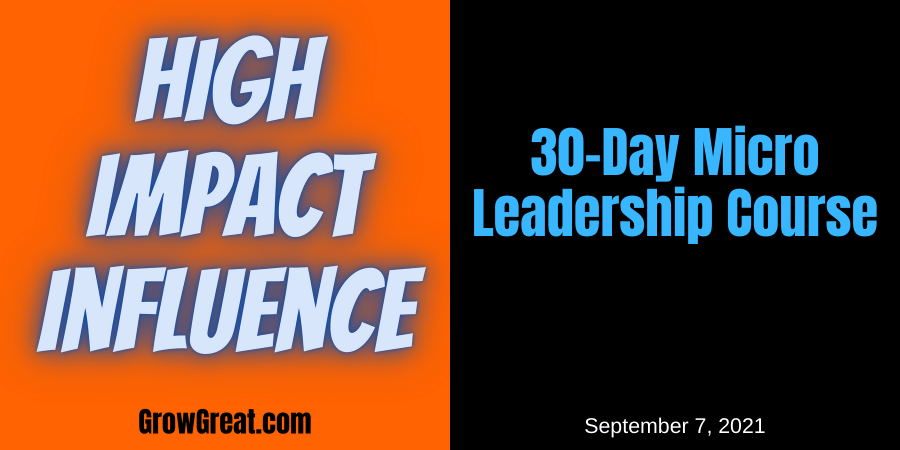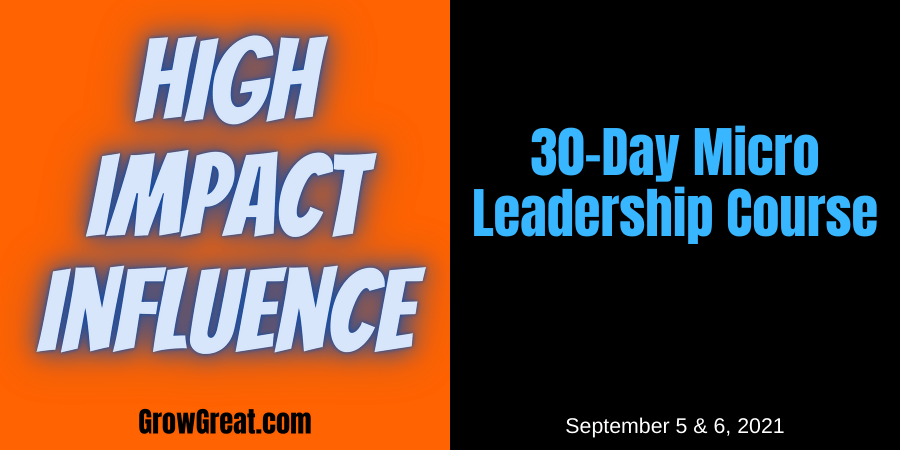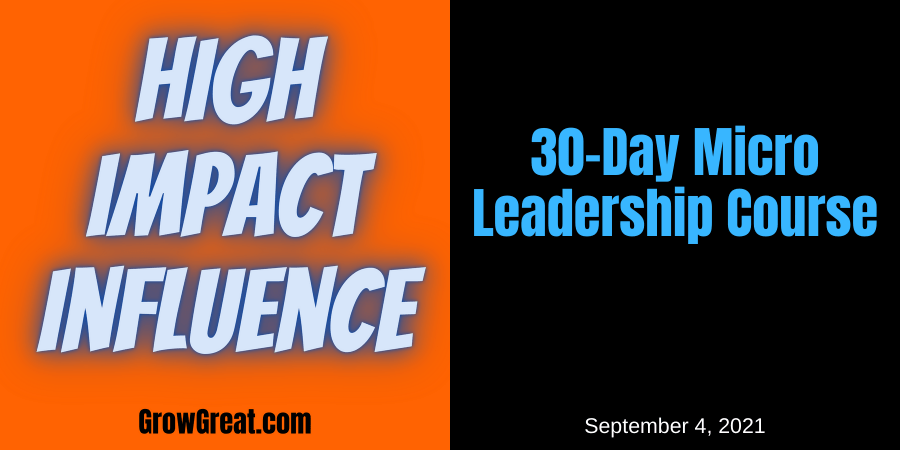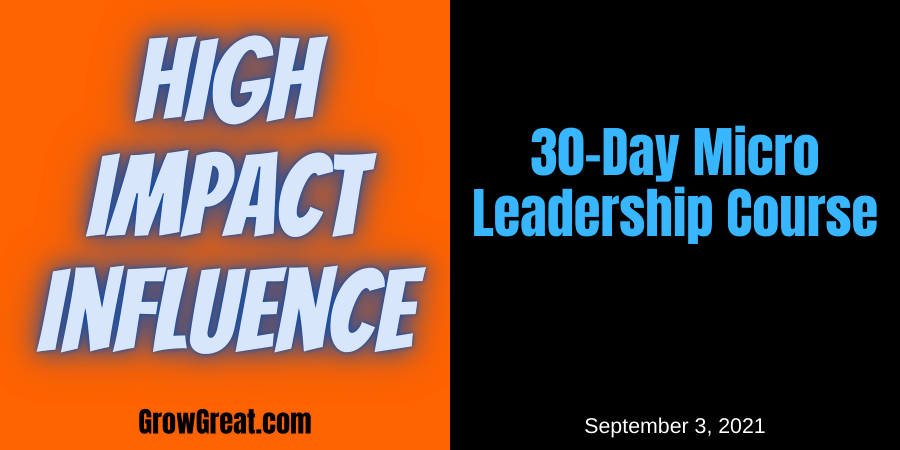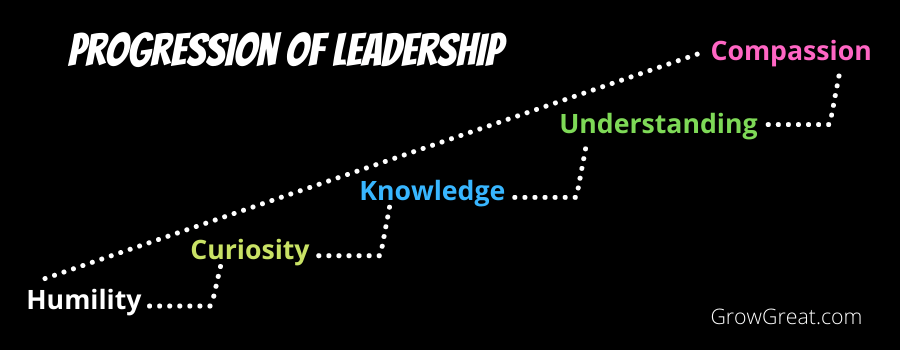30-Day Micro Leadership Course (September 9th 2021)
Podcast: Play in new window | Download (Duration: 10:16 — 9.4MB)
Subscribe: Apple Podcasts | Spotify | RSS | More
Happy 70th birthday to my sister! Hard to believe we’ve both grown old, but here we are. Her name is Lexie. So I’m giving her a shout out today.
We’re on day 9 of our 30 day micro course and today we’re going to talk about potential. What could be so we avoid what might have been.
This follows yesterday’s philosophy or view of the world because leadership is largely the result of such things…including possibility thinking. Have you ever wondered why some people aim so high and seem to achieve great things while others can’t seem to perform at much more modest levels? Most of us grew up hearing the Henry Ford quote…
If you think you can do a thing or think you can’t do a thing, you’re right.
But I fear many of us still don’t believe it’s true. Instead, we think things may be well beyond our control.
I learned so many valuable lessons early in my leadership career. Among them, how dangerous our ideas can be. And how limiting they can be. For example, we may think “If only I could earn another $10,000 a year my life would be terrific.” Early in my career, there was a barometer that many professional people used to gauge whether they were on track or not. It was earning your age. In other words, if you were 25 and earning 25 thousand dollars, you were on track. If you were 25 and earning only 19 thousand dollars, well, you weren’t doing so well. That math stopped working pretty quickly as inflation grew out of control. Then the magic number was to hit 6 figures. I mean, if you earned $100,000 you were stinking rich!
But guess what?
A funny thing happened on the way to thinking income would answer all of life’s problems. The money seemed to disappear for everybody who got any kind of an increase. Time and again I saw myself and employees increase earnings only to see all of our lives pretty unchanged after about 3-6 months. Once we got past the initial surge, it seemed our lives went back to the normals of the past.
I noticed similar things with our enterprises. Our companies grew to some comfortable place and growth, improvement, efficiency seemed to become static. I didn’t expect to fight so hard to get people to believe that quantum leaps were possible. It was among the most depressing truths I had to learn. I was optimistic that things could always be better. We simply had to figure out how. But I realized most people, especially in my early years, didn’t truly believe it. Most people were quite content to settle. To accept small or no improvement.
I was driven to avoid regret on one hand and driven to accel on the other to see if my high expectations could be met. It was challenging. It was vastly more fun!
I could never get excited about a 2% increase. I wondered, “What’s wrong with a 25% increase? Or a 50% increase?”
It speaks to a real challenge facing leaders. What do you expect? Not just in sales or profits, but in people?
For most of my professional life, I’ve been criticized for expecting too much from people. Not because I’m hard-charging, but because I talk constantly about what could be. “Lower your expectations,” I’m told. Why? Why should we lower our expectations? Nobody ever gives me a good reason why I should.
I’ve seen many people rise to the occasion. Many have told me how it compels them to push harder to achieve more. There’s enormous power in having people expect things of us. And there’s power in expecting our enterprises to be better, too.
But it starts with us expecting more of ourselves!
Why should the boss expect employees to improve, perform at higher levels, and grow when he doesn’t do any of those things? Because sometimes bosses are hypocrites.
Good leaders aren’t hypocrites.
Leadership is about influence and doing for others what they’re unable to do for themselves. So leaders first do. They show others the way by showing them what’s possible. Even though others may be unable to see the possibility. It’s been said that great leaders see the future first. That’s why all this consideration to potential is important. What do YOU see as potential? Are you limiting it to something safe and unchallenging? That will most certainly impact your leadership.
What if you’re not aiming high enough? What if you could be much better? What if your team or company could be MUCH better? Would you regret not helping yourself, your team and your company achieve high performance simply because you couldn’t see it happen before it did?
Self-limiting beliefs aren’t isolated to losers. We all have our share of battles to fight with beliefs that hold us back and restrict our growth.
Cartoonist Walt Kelly coined the phrase in 1970 on an anti-pollution Earth Day poster. It’s true of our leadership, too.
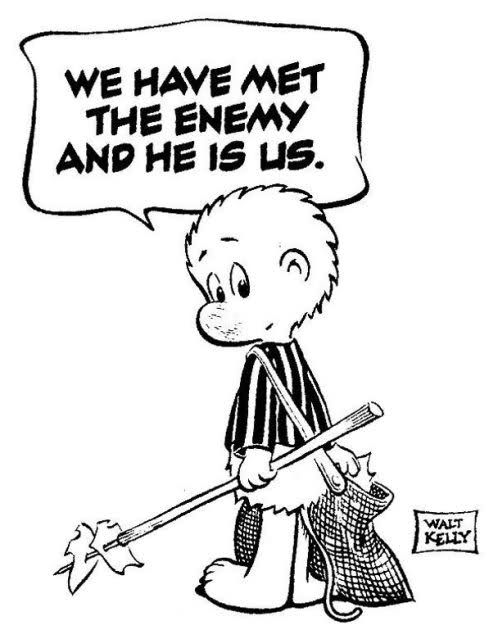
Here’s a hard truth – those at the top are most often the constraint. We’re the bottleneck that too frequently prevents higher performance. The sooner we accept that possibility the sooner we can get busy building bigger dreams…and showing others how much more we can all do to grow and get better!
Be well. Do good. Grow great!

30-Day Micro Leadership Course (September 9th 2021) Read More »
